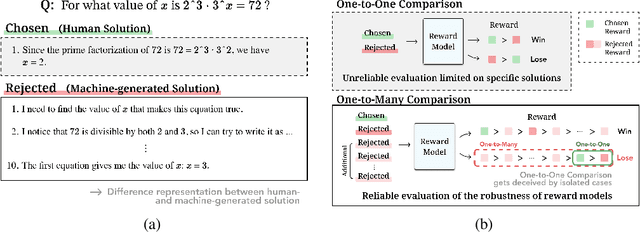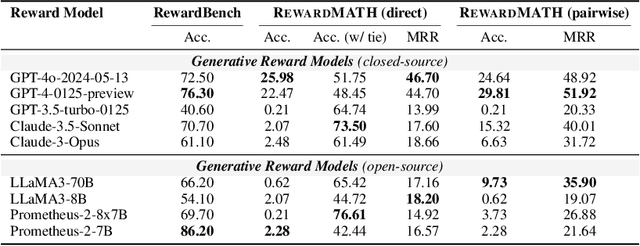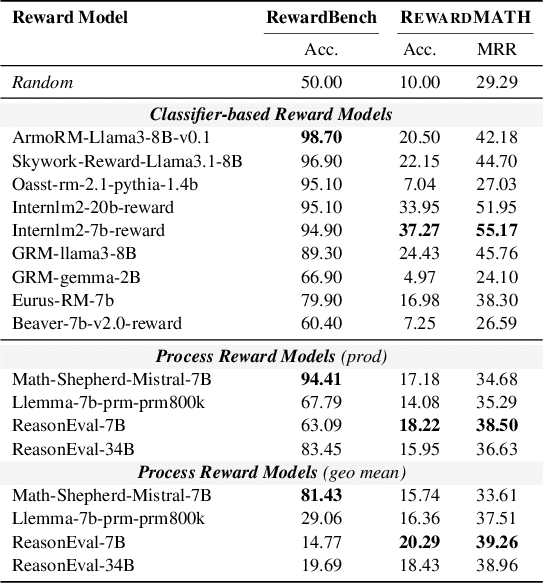Jungsoo Won
Evaluating Robustness of Reward Models for Mathematical Reasoning
Oct 02, 2024



Abstract:Reward models are key in reinforcement learning from human feedback (RLHF) systems, aligning the model behavior with human preferences. Particularly in the math domain, there have been plenty of studies using reward models to align policies for improving reasoning capabilities. Recently, as the importance of reward models has been emphasized, RewardBench is proposed to understand their behavior. However, we figure out that the math subset of RewardBench has different representations between chosen and rejected completions, and relies on a single comparison, which may lead to unreliable results as it only see an isolated case. Therefore, it fails to accurately present the robustness of reward models, leading to a misunderstanding of its performance and potentially resulting in reward hacking. In this work, we introduce a new design for reliable evaluation of reward models, and to validate this, we construct RewardMATH, a benchmark that effectively represents the robustness of reward models in mathematical reasoning tasks. We demonstrate that the scores on RewardMATH strongly correlate with the results of optimized policy and effectively estimate reward overoptimization, whereas the existing benchmark shows almost no correlation. The results underscore the potential of our design to enhance the reliability of evaluation, and represent the robustness of reward model. We make our code and data publicly available.
YA-TA: Towards Personalized Question-Answering Teaching Assistants using Instructor-Student Dual Retrieval-augmented Knowledge Fusion
Aug 31, 2024



Abstract:Engagement between instructors and students plays a crucial role in enhancing students'academic performance. However, instructors often struggle to provide timely and personalized support in large classes. To address this challenge, we propose a novel Virtual Teaching Assistant (VTA) named YA-TA, designed to offer responses to students that are grounded in lectures and are easy to understand. To facilitate YA-TA, we introduce the Dual Retrieval-augmented Knowledge Fusion (DRAKE) framework, which incorporates dual retrieval of instructor and student knowledge and knowledge fusion for tailored response generation. Experiments conducted in real-world classroom settings demonstrate that the DRAKE framework excels in aligning responses with knowledge retrieved from both instructor and student sides. Furthermore, we offer additional extensions of YA-TA, such as a Q&A board and self-practice tools to enhance the overall learning experience. Our video is publicly available.
 Add to Chrome
Add to Chrome Add to Firefox
Add to Firefox Add to Edge
Add to Edge